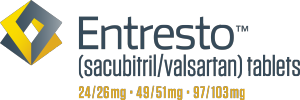 The FDA approved Novartis’s new heart failure drug Entresto (LCZ696) on July 7, 2015. This product was approved under the FDA fast track program which prioritizes therapies that fill unmet needs for patients with life-threatening conditions. Heart failure affects over 5 million people in the U.S. and is often caused by heart attacks and high blood pressure. So heart failure impacts lots of people and, in aggregate, the CDC says represents about $32 bn of medical spending annually in the U.S. and is a factor in 1 in 9 deaths in America each year.
The FDA approved Novartis’s new heart failure drug Entresto (LCZ696) on July 7, 2015. This product was approved under the FDA fast track program which prioritizes therapies that fill unmet needs for patients with life-threatening conditions. Heart failure affects over 5 million people in the U.S. and is often caused by heart attacks and high blood pressure. So heart failure impacts lots of people and, in aggregate, the CDC says represents about $32 bn of medical spending annually in the U.S. and is a factor in 1 in 9 deaths in America each year.
Novartis is looking to price Entresto as much as $12.50 per day (= $4,562 a year), and envisions a $5 bn market.
What’s unique about this Rx launch is that:
- It involved the largest clinical trial in its category of heart failure conducted among some 8,400 patients (the PARADIGM study)
- It is the first prescription drug to show a 20% higher reduction in deaths from heart failure and trips to the hospital tested against the current standard, enalapril, an ACE inhibitor
- The company is looking to partner with payors to go at-risk for payment in pay-for-performance reimbursement arrangements, with the full story covered here by Reuters
- With its higher price tag vs. generic enalapril, Novartis is looking to digitally-enhance the product through remote health monitoring programs, which is one approach to add value beyond-the-pill and ensure medication adherence in a category that has had steep drop-off curves among the patient population.
Here is Novartis CEO Joe Jimenez in an interview with McKinsey, discussing the company’s innovations. Listen carefully at the 1-minute mark where the CEO discusses an outcomes-based approach to positioning Entresto…
[youtube http://www.youtube.com/watch?v=ewzmS8n51Ds?rel=0&w=560&h=315]
Here is the company’s press release about the Entresto approval.
 Health Populi’s Hot Points: CEO Jimenez talks about the pharma company’s role in the larger health ecosystem, saying, “We’re going to have to partner with tech companies. We’re going to have to partner with data-management companies. We’re going to have to partner with providers in ways that can deliver a positive outcome so that we can improve the efficiency of that system. That’s the only way that we’re going to be able to deal with this aging population and constrained budgets.” Regular readers of Health Populi know this is our mantra and raison d’etre — the objective of connecting the fragmented health/care ecosystem to drive The Triple Aim.
Health Populi’s Hot Points: CEO Jimenez talks about the pharma company’s role in the larger health ecosystem, saying, “We’re going to have to partner with tech companies. We’re going to have to partner with data-management companies. We’re going to have to partner with providers in ways that can deliver a positive outcome so that we can improve the efficiency of that system. That’s the only way that we’re going to be able to deal with this aging population and constrained budgets.” Regular readers of Health Populi know this is our mantra and raison d’etre — the objective of connecting the fragmented health/care ecosystem to drive The Triple Aim.
But we are not techno-optimists 24×7. A well-considered commentary appeared in Medscape following Entresto’s approval. Dr. John Mandrola of the Louisville Cardiology Group (and contributor to TheHeart.org) argues for “slow medicine” in considering the cost/benefits of Entresto, giving ten reasons for slowing down, including both clinical and cost considerations.
And now there will be more scrutiny over costs in the form of a $5.2 mm grant from the Laura and John Arnold Foundation that will fund the Institute for Clinical and Economic Review’s research and reports on the pricing of new drugs and health system impacts.
Novartis isn’t the only pharma company looking to add value beyond-the-pill. Here’s a TechCrunch article by @SarahBuhr talking about AstraZeneca’s partnership with Vida to deploy a mobile health app, Day to Day, for health coaching for heart attack patients.
Look for more pills+digital combinations in the emerging era of digitally enhanced therapeutics.




 Thank you, Trey Rawles of @Optum, for including me on
Thank you, Trey Rawles of @Optum, for including me on  I was invited to be a Judge for the upcoming
I was invited to be a Judge for the upcoming  For the past 15 years,
For the past 15 years,